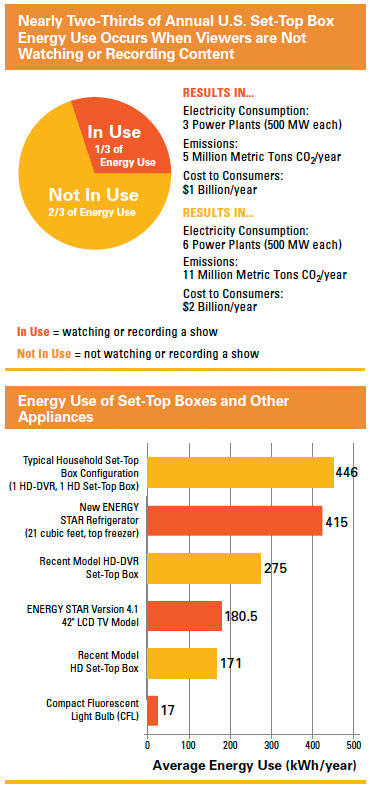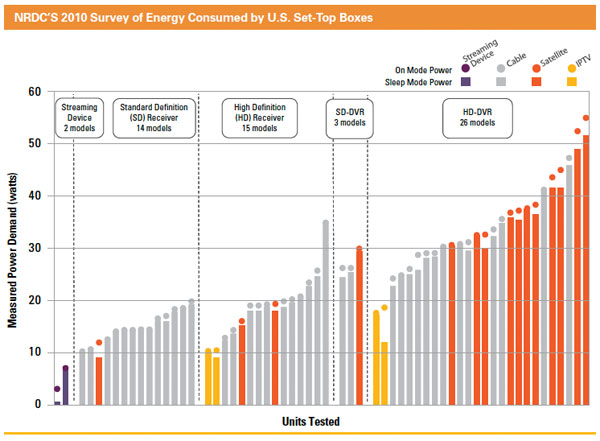Energy use has been in the local news of late. First, there’s the debate over ComEd’s smart grid proposal and related rate hike. Then, there was a headline going around: "ComEd customers could be overpaying by $189 million." I almost jumped out of my seat, but it turned out to just be a Citizens Utility Board thing about how people are "overpaying" by using more electricity than they need. "Hidden tax" is an odd way of putting it, but point taken.
As an apartment-dweller without central air, I have a limited number of ways I can conserve energy, at least more limited than someone with a house or a bigger apartment. But having tried and failed to turn PCs into DVRs, mostly due to a lack of processing power—not skills or elbow grease, of course—I should have known, or probably knew subconsciously did but refused to think about it, that my DVR is a massive energy drain.

Dammit (PDF). Lifehacker suggests turning your DVR off when not in use… but that’s sort of the point, isn’t it?
Meanwhile, the NRDC suggests a different alternative is to stream the content you’d usually DVR. (DVR is a verb now, right?)

Streaming devices aren’t bad if you only want your TV to do a couple things, like play Netflix and baseball—my highest priorities—and if you don’t mind avoiding spoiler alerts until your favorite serial is available. But they’re still aways from primetime.
Charts: NRDC


